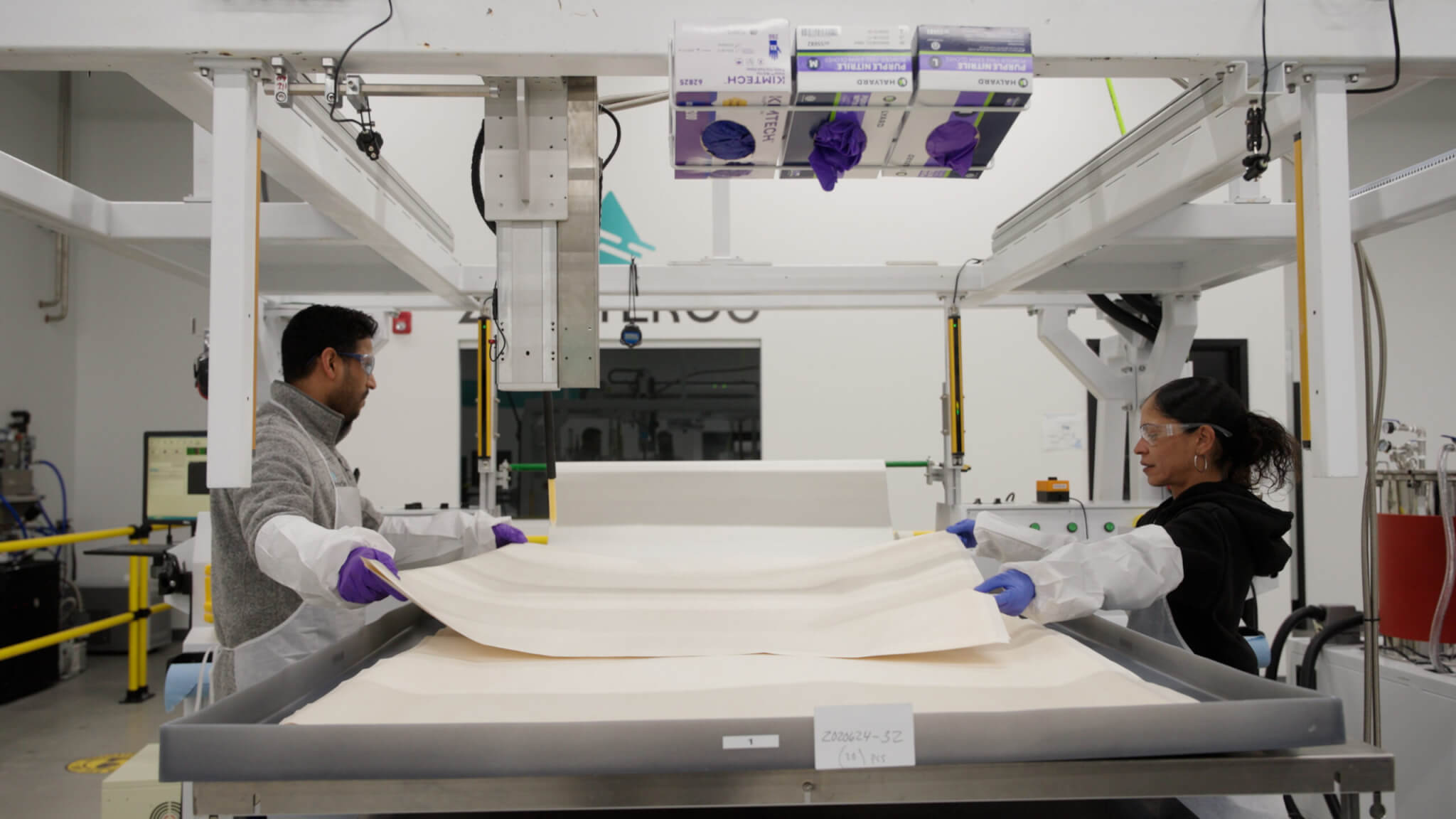River of Dreams: Lessons for Founders from ZwitterCo CEO, Alex Rappaport
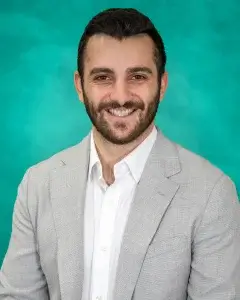 Alex Rappaport is the founder and CEO of ZwitterCo, a startup that develops membrane solutions for the treatment of highly impaired water. In the wake of the company’s recent Series B raise, Alex sat down with HG Ventures’ Ginger Rothrock to discuss the importance of the relationship between founder and investor. They covered ZwitterCo’s origin story; what it takes to be a successful founder; what Ginger looks for in an entrepreneur; navigating critical milestones; and the importance of team. This conversation has been edited for length and clarity.
Alex Rappaport is the founder and CEO of ZwitterCo, a startup that develops membrane solutions for the treatment of highly impaired water. In the wake of the company’s recent Series B raise, Alex sat down with HG Ventures’ Ginger Rothrock to discuss the importance of the relationship between founder and investor. They covered ZwitterCo’s origin story; what it takes to be a successful founder; what Ginger looks for in an entrepreneur; navigating critical milestones; and the importance of team. This conversation has been edited for length and clarity.
Ginger Rothrock: Alex, remind me how you ended up founding ZwitterCo. Didn’t it have something to do with river rafting?
Alex Rappaport: Yes, if we fast-forward to when I will write the first chapter of my memoir, the story starts with me as a river raft guide. Before college I used to teach whitewater stand up paddle boarding, kayaking and rafting on the Potomac river just west of DC, and it was there that I gained a deep appreciation for mother nature and water.

I spent every summer on the river and it was it was a transformative experience for me. It helped me to figure out what I loved and what I cared about.
That was really when I started to think about what I wanted to do with my life. I learned that I was really good at communicating and building communities of people who care deeply about sustainability environmental issues, so when I went to college I wanted to take that into a career and studied environmental engineering. At college I found a dual passion, for the science behind solutions to critical environmental problems and for entrepreneurship.
I found it exhilarating that I could combine these disciplines to get to solutions faster. I wanted to work on important problems quickly and thought that a career in engineering required more time and patience than I was willing to put in, while entrepreneurship was about understanding the need for something new in the world and then by force of will applying yourself to it until you either break the challenge or break yourself, or some combination of both.
I found my calling in trying to combine these themes of sustainable technology and entrepreneurship to solve really hard problems in the world, so when I had a chance to start a company and work on cool technology, water treatment ended up being the focal point.
Meeting the Moment: Founding ZwitterCo and Landing the Value Proposition
Ginger: When I was an undergrad I thought I wanted to save the planet too, but at that time environmental startups were not that interesting to folks. I went out to San Francisco and wanted to start a company in the environmental sector but at that time it was all about software. By the time you founded ZwitterCo, though, there was a lot of interest in water and cleanup and environmental issues generally.
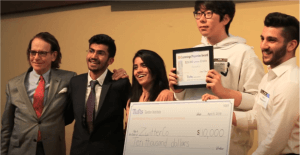
Alex: Yes, but the first set of answers I got from all the investors, advisors, mentors and other entrepreneurs that I met with was categorically: “Don’t sell the ESG story, the ESG story is fluff, it’s greenwashing, it’s never going to drive impact or value and no one’s going to make decisions based off of it.”
I had that drilled into me early on, to the point where my earliest pitch decks didn’t even mention saving water as a feature in the value proposition.
The pendulum has swung significantly in the other direction in the last five or six years, though. While it is true that it always comes down to dollars and cents, it’s also now the case that people want to be doing what’s right from a resource conservation standpoint; they want themselves and their industry to be on the right side of history. Or maybe they just see an impending regulatory doom and want to get out in front of that from a risk mitigation perspective, but today you can walk in the door with a sustainability pitch and everyone’s excited to sign the deal.
We still have to do all the hard work to show it is financially attractive too, but I’ve yet to find a customer who needs convincing that they should care about water.
Ginger: I remember that about the first time we met, when you were early in your journey; you were one of the few entrepreneurs to say: “This isn’t just about the environment, there’s an economically rational argument for wanting to reuse water”, and I thought, finally somebody gets it.
People Power: What Makes an Investor Buy Into a Founder?
Alex: One of the things I’ve always appreciated, Ginger, is that you are yourself a multi-time founder in hardware and material science, so you have a deep connection to the challenges of trying to build a venture like this. I imagine that finding conviction in a startup that is trying to pitch a breakthrough technology and trying to save the planet and create tremendous shareholder value is a hard exercise. Is 51% conviction good enough?
Ginger: I’m not going to try to quantity conviction because that’s impossible. For me, it’s a combination of data and gut feeling. Somehow, deep down, I know if a team of people and their solution are going to solve a massive problem.
Venture is a people-heavy business; everyone talks about the importance of the team, but ultimately you measure success by numbers on a spreadsheet. So, to get to conviction you have to think about the right people intersecting with a market that’s big enough and a technology that’s unique and compelling enough to get that spreadsheet return.
To me, the market and tech side is way easier because it’s data-driven. Between HG Ventures’ experience, my experience and the experience of those within our operating companies and R&D team, it’s relatively easy to assess the value and stage of a technology, but the people side is harder.
We talk a lot about self-awareness and storytelling; what is it that makes a particular entrepreneur uniquely qualified? For example, you have so many of those qualities we are typically looking for in a founder; you’re confident but it’s not just ego, you can back it up. You can tell a story and you can attract strong talent and customers. That’s important because I will admit that when we first met, I thought membranes were stupid! As someone has worked in the waste industry, I know membranes fail, so I was skeptical. But you were convincing.
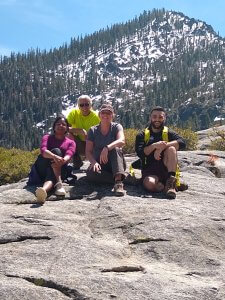
Alex: Eventually! I recall that when we first met in 2019, we spent enough time exploring this for you to kindly shut the door in our face! It wasn’t until 2021 that we got back in touch.
Ginger: Yes, for young founders coming out of college like you were, we definitely want to track their progress over at least a couple of chapters of hardship, see how well they can do things like bring on talent and put money to work in solving early-stage milestones. And yes, at first I thought there was too much unsolved technical risk for the markets we care about.
But by 2021, three major things had changed: You had partnerships that validated the story, a model that made sense, and you had pulled in folks from the industry, who were willing to leave big careers to join you.
Now, here we are, and a lot has happened. You just closed a large Series B round in a market that has not seen a lot of capital deployment; what were the big milestones to get to that point?
Major Milestones: From Pre-Seed to Series B and Beyond
Alex: Here’s my thesis for the most important milestones that have to be met at the different stages:
- Pre-seed: Is there even a market that could credibly gain value for the technology concept you have?
- Seed: Turn the technology concept into a product that’s able to live up to some amount of its promise.
- Series A: Can you prove that someone will buy that product and actually recognize the value in a real industrial or commercial environment?
- Series B: Can you take that value creation story and turn it into a business engine? Can you start to get your first multi-year dataset; can you get depth in market verticals; can you get depth in your partnership relationships; can you start to translate those first business stories into international markets? In other words, all the things that tell you that you could have a foundation for scale and that you’re starting to hit the financial milestones, whether it’s a revenue or margin target, or platform expansion.
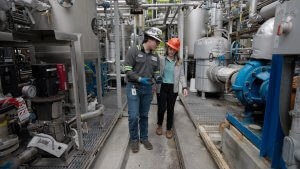
That’s really the Series B challenge that we have in front of us: We have a couple of dozen industrial points of evidence, we have multi-year datasets, we have customers who would really be impacted if ZwitterCo disappeared tomorrow; we have people who rely on us in an important industrial context.
Ginger: It always boils down to those four fundamental questions, doesn’t it? How big is the market? What are the trends and shifts in that market? How capable is the team? And how much evidence of traction do you have?
Every signal that we see says water is becoming something people are willing to put dollars behind preserving and protecting, and the intensity of pain that could be felt if people don’t manage water in a different fashion means now is a very strong time to be a water technology company.
A Culture of Empowerment: The Importance of Team
Ginger: Alex, you’ve created a culture of empowerment at ZwitterCo. I am interested in how you continue to encourage that entrepreneurial spirit as the company matures.
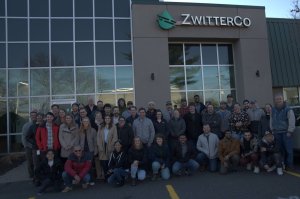
Alex: I like to think I am a good community builder, but I don’t consider myself an exceptional like ‘doer’ or operator in any single function. I’m not the best person to drive sales or operations or international expansion, so I approach my relationships with my executive leadership team with an expectation that they have to be able to hold the keys to the bus, they have to be able to bring their genius into the mix andfunnel their effort towards the collective strategy that that we’ve aligned on, and then my job is to give them resources, give them direction and create a culture of expectation and accountability. I want to learn from my leadership team. You have to surround yourself with people who are so much better than you in their particular function so that you have no temptation to oversee and overrule.
Ginger: What does the future hold? What’s next for ZwitterCo?
Alex: Platform expansion is a large part of it. We have to be able to look out into what the next set of products needs to be and put our innovation center to work on that. By the end of this year we’re expecting to commercialize a new product that’s going to focus on some high value food grade separations and specialty protein markets.
We’re doing a lot in our manufacturing scale up too, because we’re starting to see the volumes of production go up. We’re looking at how much material we have to be able to produce as well increasing the quality and stringency standards in our production, because we’re going into more heavily regulated markets like drinking water and food grade.
We also just brought on our first commercial leadership in the Middle East and we now have a very large pipeline of projects in that region.
Ginger: Thinking about this journey reinforces why it’s so important for there to be good chemistry between a founder and investor; it’s a long-term relationship. I always say an investor has to ask themselves: “Could I sit on a board with this person for the next seven years?”.
Alex: I often tell founders that the moment that matters in an investment process is the point when you get to a texting basis with whoever your target lead is; you and I have been on that level for a long time and it’s awesome.
If a founder can get multiple term sheets and create a competitive process, that’s great, but I’ve never had that. There has always only been one term sheet that mattered and that was from someone I was on a Saturday 2am texting basis with, because we had real trust. That’s what gets you across the finish line.
Founded in 2018, ZwitterCo provides membrane solutions for the treatment of highly-impaired wastewater. The company’s membranes make it possible to treat historically unfilterable streams. ZwitterCo enables customers to manage and recover value from water, transforming waste from a cost to a benefit. The company has raised $98.8M in venture investing, including $58.4M in a July 2024 Series B round. HG Ventures was an early investor.

